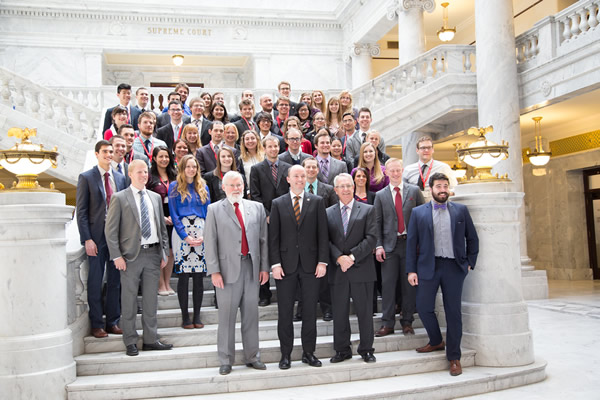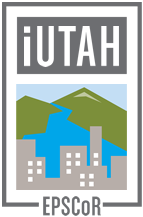News and Highlights
This is a list of past iUTAH EPSCoR news from 2012 to 2018.
March 15, 2016
Humans of USU: Student dives into water-shortage research
iUTAH 2015 iFellow Viviane Baji was featured in an conversational article in The Utah Statesman. Here’s an excerpt:
“I guess water is kind of my thing,” said Viviane Baji, a senior student researcher at Utah State University. This summer, Baji collected research as an iFellow for the innovative Urban Transitions and Aridregion Hydro-sustainability (iUTAH) program. iUTAH is a five-year interdisciplinary research program studying Utah’s water’s future sustainability.
Baji presented her iFellow data analysis at the State Capitol in January and will be presenting again at the National Conference on Undergraduate Research in Asheville, North Carolina. A Logan native, Baji is majoring in Environmental and Natural Resources Economics. She also serves as the Environment and Natural Resource club president this year. The Statesman chatted with Baji about her research conclusions and her experiences as a student researcher.
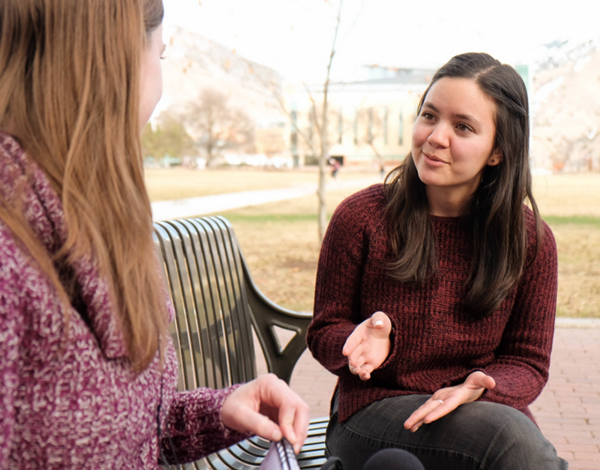
March 14, 2016
Riverton Residents and Utah's Water Future
Just under half of Riverton residents think there is enough water to meet the city’s current needs, whereas only 24 percent are confident of Riverton’s future water supply. This is one of many findings that Dr. Melissa Haeffner, a postdoctoral research fellow for iUTAH, and Dr. Douglas Jackson-Smith, a professor of sociology at Utah State University, presented to Riverton City Council on Jan. 12. Haeffner and Jackson-Smith are part of a team analyzing data from an extensive assessment of water use and perceptions in the three iUTAH watersheds in July and August 2014. They are presenting results to city councils and public utility staff in the communities where surveys were administered, to make local and state water decision-makers aware of the experiences and priorities of residents.
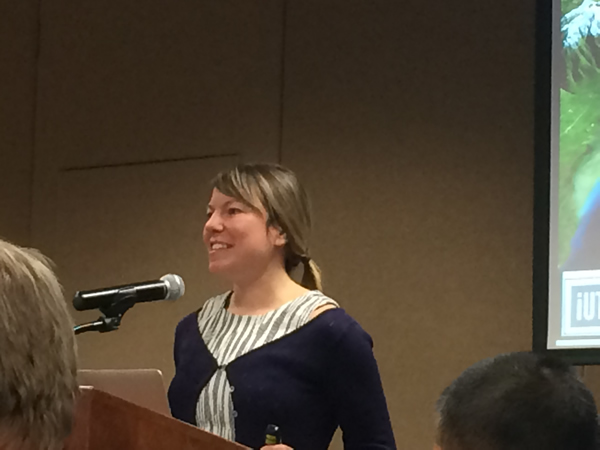
March 14, 2016
Call for Abstracts- 2016 USU Spring Runoff Conference
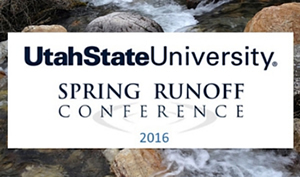
Utah State University’s Spring Runoff Conference is just weeks away. The annual spring runoff conference brings together researchers, scientists, and top experts in Utah and Intermountain West to discuss water issues. This year’s conference will take place April 5-6, 2016 at the Eccles Conference Center on USU’s Logan campus.
Students, undergraduates and graduate students, faculty, and professionals are invited to submit abstracts. The Spring Runoff Conference provides a forum for interdisciplinary sharing of ideas on water-related issues, and is a great venue for introducing research as a poster or oral presentation. The deadline for abstract submissions is Wednesday, March 16.
March 13, 2016
A dataset for the Utah Water Survey has been compiled and published on the iUTAH Data Repository. To create these data, students and faculty from several universities surveyed adults at grocery stores throughout the state. The resulting dataset is the basis of an interactive web application for visualizing quantitative survey data, a collaboration between the iUTAH CI team and iUTAH social scientists.
Dataset: Utah Water Survey: Perceptions and Concerns about Water Issues in Utah (2015)
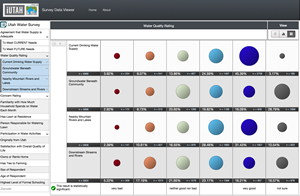
Researchers at Utah State University have created a short survey instrument to gather information about the views and concerns of Utah residents related to water issues. The survey has been implemented with collaborating students and faculty from the University of Utah, Utah Valley University, Weber State University, Salt Lake Community College, Southern Utah University, Dixie State University, and Snow College.
Key points of this dataset/survey include:
- Data represent responses from over 6,000 adults to a short survey
- Survey was administered at grocery stores in Utah between fall 2014 to fall 2015
- The 3-minute questionnaire examined perceptions and concerns about water issues in the state
- Approximately 42% of subjects completed the survey
This survey is designed to give the public a chance to share their perceptions and concerns about water supply, water quality, and other related issues. While finding out what the ‘average citizen’ feels about key water issues is one goal of the project, the most interesting and important results will explore ways in which perspectives about water vary across the population based on where people live and their demographic background (gender, age, education, etc.).
To publish your dataset (or request to have it featured here), deposit it in the repository, and contact the iUTAH Data Manager Amber Jones.
March 11, 2016
Winning the water war starts with winning the battle on data
iUTAH researcher and team lead Jeff Horsburgh was recently featured by the online journal Psys.org. Here’s an excerpt:
The water meter buried in your front yard isn't exactly the most cutting-edge piece of technology. While they are accurate, most residential water meters are read only once per month, resulting in rough usage data - often rounded to the nearest 1,000 gallons. With the limited data, water utility managers can't distinguish individual uses, such as sprinklers versus toilets, or determine usage by time of day. This limits their ability to spot costly leaks or see opportunities for water conservation. And it gives water users no useful information about how and when they use water.
With growing populations in cities and increasing uncertainty about water supply and quality, water resource managers are looking for smarter tools to measure and manage urban water use.
So-called 'smart' meters are one such technology that can capture water use data at high temporal resolution. Smart meters can improve water end-use forecasting and create useful information about demand and supply. And while the new meters show promise, they have failed to achieve widespread adoption in the U.S.
"Replacing existing, analog meters is expensive," said Dr. Jeff Horsburgh, an assistant professor of civil and environmental engineering at Utah State University. "And there is a lack of available cyberinfrastructure for extracting useful information from the large volume of data that smart meters produce.”
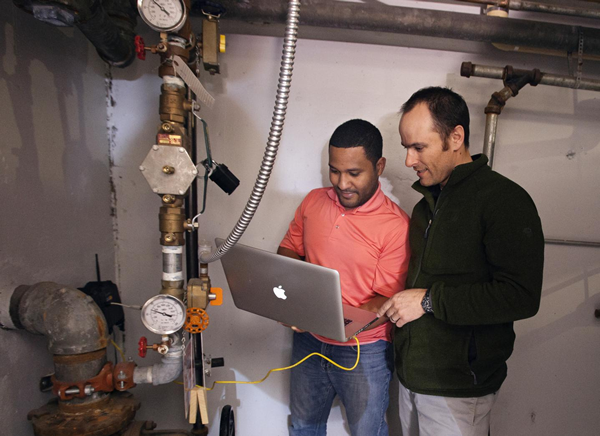
March 1, 2016
2015 iFellow Matt Barnett featured on the USU RGS website
Last year’s iUTAH iFellows have been busy presenting their water-related research findings these past few weeks at various state venues. USU’s Matthew Barnett of Blanding, Utah was featured on the Utah State University Office of Research and Graduate Studies website for his presentation of research at Utah’s Capitol. Here’s an excerpt from that article:
USU’s Matthew Barnett of Blanding, Utah presented his research on links between outdoor recreation and environmental concerns among Utahns. The Department of Sociology, Social Work and Anthropology student found that those engaged in water recreation — fishing, boating, etc… — viewed actions to conserve Utah water more positively than those who do not.
With the state’s population expected to double in the next fifty years, Barnett said his research will be instrumental in the planning and preparation for Utah’s present and future water challenges, giving the state “a better shot at meeting our goals for sustainability.”
“By understanding the social processes that drive people’s perceptions about water, it contributes to a body of knowledge and a well-informed public, leading to well-directed education initiatives,” he said.
